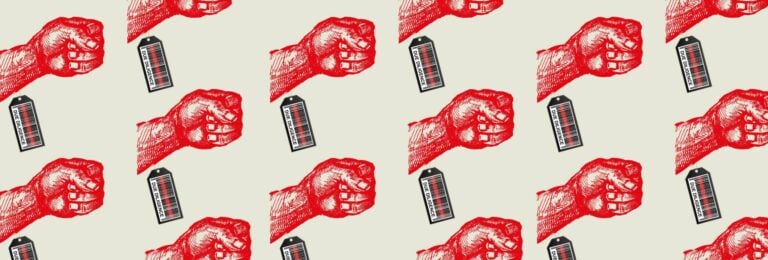
Fair Phones: It’s your call
makeITfair releases a new report today that shows that the efforts of European mobile network operators, such as Vodafone and T-Mobile, to improve the social and environmental conditions in the mobile phone supply chain still leaves a lot to desire.
It is common practice for mobile network operators to offer customers a ‘free’ new mobile phone when they sign up for a new subscription, or renew their subscription. “Evidently, this type of marketing has an enormous impact on the amount of mobile phones that are circulating on the market, as well as on the mobile phone production processes, and the mounting volumes of e-waste”, says SOMO researcher Mariëtte van Huijstee. Although most mobile network operators have mobile phone ‘hand in’ programmes in place, collection and recycling figures of mobile phones are still dramatically low. This situation, combined with the fact that consumers are seduced into subscription renewal by offering the newest mobile phone model for “free”, sustains the continued demand of metal-mining for mobile phone manufacturing, and creates a continuous stream of e-waste.
‘Fair phones’ are non-existent. This may be partly explained by the fact that consumer interest in ‘green’ or ‘fair’ attributes of mobile phones is perceived as low by most operators. However, earlier market research by makeITfair revealed that a majority of young European consumers is concerned about the social and environmental conditions under which their mobiles are produced, and are willing to pay 10% more for fair electronics.
In terms of monitoring improvements in the mobile phone supply chain as well as making sure that conditions will indeed improve, there is still a world to win. Of the ten mobile network operators that were studied, seven have some sort of supply chain policy in place that sets social and environmental requirements for their suppliers. These are TeliaSonera, T-Mobile, Vodafone, KPN (including E-Plus), Tele2, Telenor and Teléfonica (known as ‘O2’ in Germany). Several of these policies are meager. Tre doesn’t have such a policy, DNA is currently developing one and for Elisa no such policy is available in the public domain. Only five operators in the selection -Telenor, T-Mobile, Vodafone, Telefónica and TeliaSonera- have systems in place to monitor the compliance with their policies by suppliers. Nevertheless, the number of suppliers that are monitored by actually visiting their plants and offices represent only a very small share of the total supplier base.
Collectively, the ten mobile network operators included in the makeITfair report had nearly 1 billion subscribers in 2008 (according to International Telecomunication Union ), implying they represent almost one quarter of all global subscriptions for mobile communication networks. Earlier makeITfair research has signalled that severe environmental and social problems persist in the mobile phone supply chain, stressing the need for increased responsibility and accountability in the chain.
Download the report: Fair Phones: it’s your call
Related news
-
 The hidden human costs linked to global supply chains in ChinaPosted in category:News
The hidden human costs linked to global supply chains in ChinaPosted in category:News Joshua RosenzweigPublished on:
Joshua RosenzweigPublished on: -
 Major brands sourcing from China lack public policies on responsible exitPosted in category:News
Major brands sourcing from China lack public policies on responsible exitPosted in category:News Joshua RosenzweigPublished on:
Joshua RosenzweigPublished on: -


